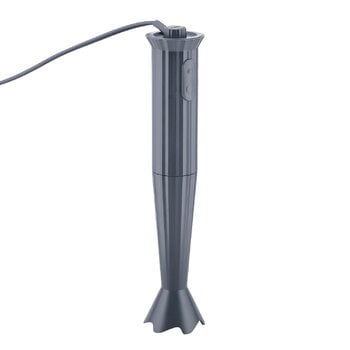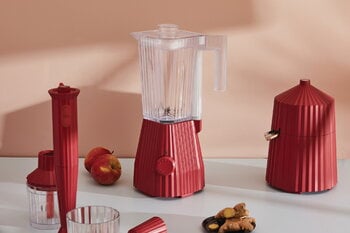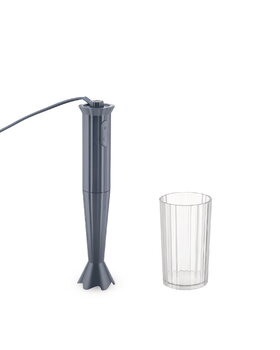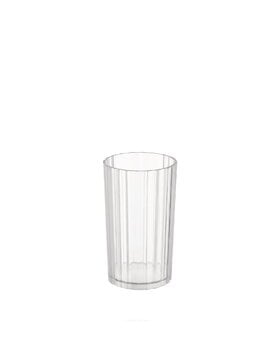Alessi’s Plissé hand blender boasts a dynamic, sculptural design inspired by the worlds of fashion and architecture. Designed by Michele De Lucchi, the hand-held blender has a unique surface texture that resembles pleated fabric – it is simply too beautiful to be kept hidden in the kitchen cabinet!
The hand blender has two speed settings, normal and turbo. It comes with a compatible container with a capacity of 700 ml. The container is made of high quality PCTG plastic, which is extremely durable but lightweight. The container is suitable for both cold and hot drinks or food, as it has a heat resistance of -40 to +90 degrees! The non-slip base ensures that the container remains firmly in place during use of the stick mixer.











